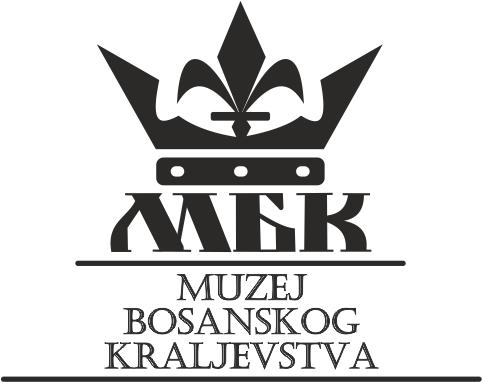Vuk Vukoslavić (before May 25, 1325 – at the earliest 1351) was the son of Prince Vukoslav Hrvatinić and the brother of Vlatko and Pavle Vukoslavić. His name appears only twice in the preserved sources, once in the charter of his father and then much later in the charter of the Bosnian Ban Stjepan II Kotromanić. On May 25, 1325, Prince Vukoslav Hrvatinić issued a charter in Ključ, which represents the first written mention of this town, by which he declared the illegitimate son of a certain Juraj Hranić free. On that occasion, the text of the charter also names his sons: Vlatko, Vuk and Pavle, on whom the father invokes God’s wrath if they dare to change his decision after his death. Considering that he appears in the charter after Vlatko and before Pavle, it is likely that he was the middle son of Prince Vukoslav Hrvatinić.
Towards the end of his reign, Ban Stjepan II Kotromanić, together with his brother Prince Vladislav, issued Prince Vuk and his brother Pavle a charter, which is usually dated to 1351, and on that occasion confirmed their possessions in the counties of Banica and Vrbanja, which they inherited from their father. Their brother Vlatko had possessions in these counties as well, he held the center in the county of Banica, and the town of Ključ, but the fate of Kotor in Vrbanja is unknown at this time. The charter continues to list the three military exploits Prince Vuk performed in the armies of Ban Stjepan II and thereby proved his “faithful service” to his senior, as a result of which he received confirmation of his hereditary possessions. The first merit by which he gained the special grace of his ruler took place in 1329, when in the war against Serbia, the Bosnian army broke into Polimlje and suffered a heavy defeat there. The Bosnian ban’s horse also died in the chaos of the war, so Prince Vuk gave him his horse, saving his life. In 1350, Prince Vuk demonstrated his military skills once again when he returned the town of Novi on the Neretva to Ban Stjepan, which had previously been conquered by Emperor Dušan. Namely, the Serbian emperor launched a military campaign in Bosnia with the aim of reintegrating the Hum region into his state, but due to the Byzantine attack on the Serbian positions in Macedonia, he was forced to end this campaign and transfer his troops to the southern regions. And the third episode that marked Prince Vuk’s warrior career took place in the war against Prince Nelipac, who captured the town of Visući on Cetina from the Bosnian ban on that occasion. However, after Vuk conquered Triljski Brod, the Bosnian detachments managed to once again put the town of Visući under the rule of Ban Stjepan II Kotromanić. It is estimated that these events occurred between 1337 and 1340.
Although scarce, the above-mentioned data roughly outline the life of Prince Vuk Vukoslavić, who turns out to have been a typical medieval knight for whom war and warfare for his ruler represented the main source of benefits. Therefore, for him, military service represents the foundation of his faithful service, where warfare is not only a means of life but also a source of social status and prominence.
Bibliography:
- Ćirković, Sima: Istorija srednjovekovne bosanske države, SKZ, Beograd, 1964.
- Ćorović, Vladimir: Historija Bosne, I, SKA (Posebna izdanja 129, Društveni i istoriski spisi 58), Beograd, 1940.
- Ćošković, Pejo: “Hrvatinići (Horvatići, Stipančić Hrvatinić, Stipanići, Stjepanići), (velikaški rod)” in: Hrvatski biografski leksikon, V (Gn-H), Leksikografski zavod Miroslav Krleža, Zagreb, 2002, 725-739.
- Isailović, Neven: “Povelja kneza Vukoslava Hrvatinića kojom daje slobodu sinu Jurja Hranićevog i Marice”, Građa o prošlosti Bosne 10, Banja Luka, 2017, 69-89.
- Mrgić-Radojčić, Jelena: “Povelja bana Stjepana II Kotromanića knezu Vuku i Pavlu Vukoslaviću”, Stari srpski arhiv 1, Laktaši, 2002, 79-92.
- Mrgić-Radojčić, Jelena: Donji Kraji. Krajina srednjovekovne Bosne, Filozofski fakultet u Beogradu-Filozofski fakultet u Banjaluci-Istorijski institut u Banjaluci, Beograd-Banja Luka, 2002.
- Smičiklas, Tadija: Codex diplomaticus regni Croatiae, Dalmatiae et Slavoniae, IX, JAZU, Zagreb, 1911.
- Šišić, Ferdo: Vojvoda Hrvoje Vukčić Hrvatinić i njegovo doba, MH, Zagreb, 1902.
- Thallόczy, Ljudevit: “Istraživanje o postanku bosanske banovine sa naročitim obzirom na povelje kӧrmendskog arkiva”, Glasnik Zemaljskog muzeja 18, Sarajevo, 1906, 401-444.
- Thallóczy, Ludwig von: Studien zur geschichte Bosniens und Serbiens in mittelalter, Duncker&Humblot, München-Leipzig, 1914.
The Hungarian National Archives in Budapest (Magyar Nemzeti Levéltár Országos Levéltára) in the so-called Pre-Mohács collection (Mohács Előtti Gyűjtemény) signature Diplomatikai Levéltár (DL) 66502.
Source of signature: Isailović, Neven: “Povelja kneza Vukoslava Hrvatinića kojom daje slobodu sinu Jurja Hranićevog i Marice”, Građa o prošlosti Bosne 10, Banja Luka, 2017, p. 75.
